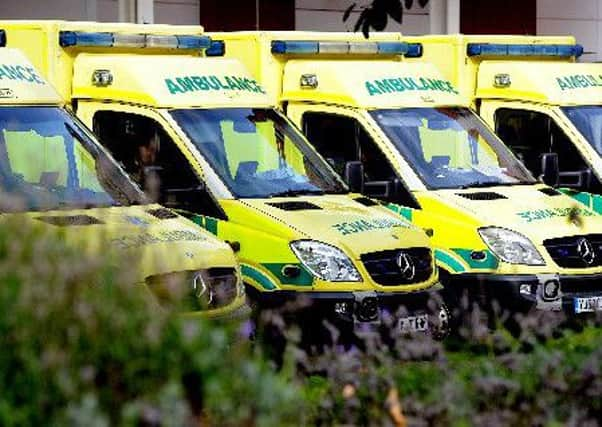Health chief defends £7m spend on private ambulances


The spend, which is double the amount spent the year before, has been branded shocking by union Unison, but the North West Ambulance Service [NWAS] said it is being forced to hire outside vehicles to cope with spikes in demand.
The service said it has now been given extra money to recruit more staff and buy more vehicles, but said that can take up to three years and 12 months respectively.
Advertisement
Hide AdAdvertisement
Hide AdIt said it will continue to use private ambulances when necessary, such as at Christmas, bank holidays, and during extreme weather.
In 2014/15, £3.2m was spent on hiring ambulances from private firms and charities such as St John Ambulance and the British Red Cross, compared to £6.8m last year.
But interim director of operations, Ged Blezard, said the number of urgent, life-threatening calls has rocketed 30 per cent in the last two years, and said the private vehicles were only being sent to less serious calls.
Kevin Lucas, from Unison, said the service needs to train more paramedics and ambulance staff so it doesn’t have to look elsewhere for cover, and called on the Government to make the job more attractive.
Advertisement
Hide AdAdvertisement
Hide AdHe said: “The simple fact is they’re not able to train enough staff because the role is not as attractive as it used to be.
“The physical and mental pressures on staff are increasing year on year, that’s what our members are telling us. And yet their pay has not been reviewed in ten years.”
NWAS said last month that trolley jams at A&E are leading to lengthy delays in handover times, with paramedics kept waiting for up to two hours in busy hospital departments.
The time spent waiting equated to 33 ambulances being taken off the road for a week, the service said.
Advertisement
Hide AdAdvertisement
Hide AdMr Lucas said: “Our members say this is becoming more common place, but the problem is bigger than that.
“There are insufficient staff numbers to cope with the demand. This is a government failure to plan and put sufficient resources in.
“NWAS has made efforts to recruit more people, but the government needs to improve pay and working conditions for ambulance staff.”
Earlier this year, paramedics from Poland clambered behind the wheel of NWAS vehicles for the first time as the service looked to the eastern European country, as well as Finland, to plug a shortfall in numbers, which was partly blamed on a higher-than-expected number of current medics quitting.
Advertisement
Hide AdAdvertisement
Hide AdMr Blezard said: “Purchasing new ambulances can take up to twelve months and recruiting enough new staff can take up to three years.
“In order to fill that gap in the meantime, the trust increased its use of private and volunteer ambulance services and organisations.
“We hope to see that figure decrease once we have sufficient resources for the demands placed upon us.
“While the private services we employ are manned by staff, who are subject to the same safe-guarding checks as NHS staff, the trust only sends these to the lower level, non life-threatening incidents, enabling us to free up our own staff for the more urgent cases.
Advertisement
Hide AdAdvertisement
Hide Ad“We do have challenges to contend with, such as a national shortage of paramedics. However, to combat this, the trust has improved the internal process for existing frontline staff to become qualified paramedics
and has also improved the external university route for those wishing to become paramedics.
“Using private ambulance services for expected periods of high demand such as Bank Holidays, Christmas and during extreme weather is something the trust has done regularly and will continue to do so should the need arise.”